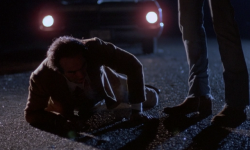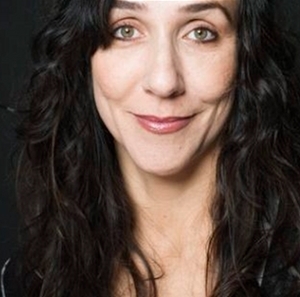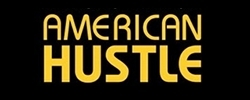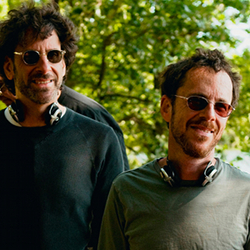
Interview: Gabriela Cowperthwaite on Blackfish

Editor’s Notes: Blackfish opens in Toronto at TIFF Bell Lightbox on Friday, July 19 & Vancouver on Friday, August 2, 2013. The film is being released in Canada by KINOSMITH INC. Read our review.
I had the pleasure of interviewing Gabriela Cowperthwaite, the Director/Writer/Producer of Blackfish, a film that generated a lot of buzz after premiering at Sundance Film Festival. Gabriela captures the essence of humility and humbleness. I could tell she is still surprised by the amount of praise she receives for her efforts with Blackfish. We learned that she has been a documentary filmmaker for 14 years; all of her hard work has paid off. This is a filmmaker you need to add to your radar, she has more in the works!
Adrian Charlie: Congratulations on a spectacular film. Blackfish is deeply moving with a narrative that flows organically. How does it feel to receive praise all over the world?
Gabriela Cowperthwaite: You’re so nice to say that. It’s a very crazy feeling. I don’t think I ever expected people to…being a documentary filmmaker. You make the film because you feel like you have to. You feel like you never had a choice. Once you learn something and once you start on a story you keep going forward and you just keep making it. You have to finish it basically. What drives you to make it is not the thought that people might go see it. So that part just snuck up on me. The thought that people would go and pay to see it on purpose. And that people would say that it could be a possible agent for change. It’s more than I could have ever hoped for.
AC: I’ve already told friends and family when Blackfish comes out they need to see it.
GC: I appreciate that! Documentaries are in some ways the redheaded stepchild of the film industry. It’s not where you go to make money. The films often times can’t compete in theatres with fiction films. The fact that people are selling out the theatres is more than I could have ever hoped for.
AC: One takeaway from the film is that there should be a precedent for wild animals in captivity and when they attack. If a dog bits a neighbor the owner is liable and often times the dog is put down. When it comes to SeaWorld if an orca kills a trainer, SeaWorld doesn’t claim liability. Do you see this as a stepping-stone for setting a precedent for dangerous animals in captivity?

GC: That’s a good question. If an animal kills a human often times that animal is euthanized. I think what blew my mind about the Tilikum story is that I knew he would not be euthanized. For one, he’s worth such a large amount of money. He’s their top breeder. He’s worth vasts amounts of money. On top of that, the decision they made to breed him after he killed people. That is the thing that is the most scary and eye opening. I don’t know if there is a precedent sent. I don’t know that people would look upon that and say that you know, this is something that people will start doing in the future. SeaWorld operates in it’s own bubble. It observes it’s own rules. It conjures up it’s own form of science. They have their own set of rules that they choose to abide by, I think that’s what’s scary about that situation. Nobody else had a say over what was going on with Tilikum. It was OSHA (Occupational Safety and Health Administration) that jumped in who decided to have a say about what was happening with the trainers. The human death shined a magnifying glass, not only with what was going on with the trainers but everything going on in the park. I don’t know that there is a precedent can be set based on SeaWorld. They make their own laws, they make their own rules it seems at that park.
AC: I realize it’s a loaded question. There is no cut and dry answer.
GC: It’s an interesting thing to think about for circuses, Vegas and all of those acts with animals.
AC: Have you received backlash from SeaWorld or SeaWorld supporters?
GC: Very little. I have not received backlash from SeaWorld directly. They have issued statements in the press about how the film failed to discuss that they care about the trainers and their animals. That’s pretty much it. There are some supporters that have come out and asked, “How could you speak so poorly about such a great place that has made so many people happy?” Pretty much every single critique we have gotten in that vain have been from people who clearly have not seen the movie. They’ll bring up things like, “Why did you show Dawn Brancheau’s death?” The film doesn’t show that and I would never show that.
AC: One of the things that will take people by surprise is the clear lack of safety. I’m from Victoria, BC. I remember fond memories of Sealand of the Pacific as a child. I remember hearing about how the death of Keltie Byrne was an accident. I remember believing that. That’s another thing that audiences need to walk out of Blackfish and consider the source. Was that important to you? To plant the seed for people to question the source and do their own research.
GC: Absolutely. I realized that things at marine parks aren’t what they seem. My first message was to myself. How could I be someone who blindly took their kids to marine parks? I took my kids to SeaWorld. Being a passive consumer is probably 90% of the problem. You see a spectacle, you watch the spectacle and you have to force yourself to truly examine why these whales are doing these tricks. Obviously we know it’s because of food. You have to think about how the whales get here in the first place. You have to peel back the onion from that moment. You’re exactly right, think about the source. How did this come to be? What is it that I’m really seeing? A lot of the information in my film…it’s not like I went on some sort of caper for two years. A lot of this information is just there. I happened to find all of it for two years, persevering. If you really wanted to find this out it was at our fingertips the whole time. Of course I had to interview people and fly to different places. It’s not like it’s easy to do. You certainly could have found out about Penn Cove. You certainly could have found out about how the first whales came to marine parks. The Penn Cove 1970 captures is well documented. You certainly could have found out about Tilikum having killed two people. All of the signs are there. You’re exactly right. It’s all about not just being a passive consumer. Try to do a little bit of research about what it is you’re buying.
AC: I read previous interviews and you have stated that Blackfish is not your film. When did that become clear to you?
GC: That’s a good question. I think when I started realizing that this film was changing how I perceived not only that place, but all places like that. Let me think about that for a second. You know, actually when I finished the film and started screening it for people. I realized that they were experiencing the same revelations in 80 minutes that I experienced over the two-year period. I realized that the film had the ability to make an impact. When I started seeing that people were running the whole gamut of reactions: “I can’t believe I didn’t know this.” People saying “I’m not going to SeaWorld until they commit to change.” All the way to people saying, “Where can I go? How can I change this? Give me more information because I want to fight for change.” I realized that this 80-minute document was bigger than me. I didn’t necessarily have all of the answers about where to go next. It became bigger than me very fast because of the reactions it was getting. I realized that this became everybody’s film.
AC: Can you suggest organizations that audiences can seek out if they want to make a difference?
DC: The former trainers have created a website called “Voice of the Orcas.” It’s a landing pad for what you can do to make a difference. It announces information, such as scientific information about where you can go to next to educate yourself about these animals and the parks. There are some powerful campaigns that are coming up. One is about non-personhood rights for animals. Starting with animals such as elephants and killer whales. There is our own personal message that we believe humans need to stop captive breeding and retire the whales that are still there to a sea pen. Which is essentially like a cordoned off cove. You can’t toss these animals back in the ocean. They don’t know how to eat live fish. A lot of them are on antibiotics and wouldn’t survive. The sea pen is a dignified option that could preserve their health and let them live their lives out in a healthier environment. There are some steps that we’re encouraging marine parks to take in hopes that killer whales for entertainment will be phased out in a generation.
AC: Can you talk about your experience at Sundance Film Festival?
DC: That call will go down as the most memorable call I’ve ever received. Every single one of our shows was sold out and had a wait list line out the door. There were people holding up signs that said, “Please! Looking for tickets for Blackfish.” *laughs* Like, what?! I couldn’t believe it. I was blown away that it was such a hot ticket in town. I’ve made other films before and worked in documentaries for 14 years. When you get into Sundance you’re catapulted into this brother/sisterhood of some of the finest filmmakers in the world at that time. It was an honor to have the light shine on your work. It’s something I never, truly never expected. In fact I would tell members of my crew that they weren’t allowed to say the word “Sundance” during the two years that we were working. It’s the worst documentary karma to start thinking you even have a chance there. It’s not that you don’t think your film is good enough to get into Sundance it’s that *no* film gets into Sundance! The experience was truly a great experience. I thought it would be overwhelming or exhausting. Maybe it was? It was a two-week thrill ride for me. I made sure I stayed for every single minute. I said to myself, “I may never have this chance again.”
AC: I was blown away. I believe Blackfish is one of the best documentary films I’ve seen in recent years. You certainly deserve all of the attention and recognition. I’m thrilled to hear about your story about Sundance.
GC: Thank you so much for saying that! Thank you. We come out in a couple of weeks. I sometimes temper all of my excitement and moderate my feelings. Often times the festival circuit, the audience is already curious and very interested people. They’re excited to learn about the world. The most telling reactions will be the general public. I’m always like, “This has been a great 6-8 months.” We’ll see if we can hang with the big boys in the big theaters. The summer blockbusters! We’ll see!
AC: What’s next for you and your team? Do you have anything in the works?
GC: You know, actually I do. I’m very careful not to talk about it. Again, that documentary karma. I call it the blue-collar version of filmmaking. You don’t have a film until you start filming. Until I start filming I’m keeping my mouth shut. You don’t have something until you have something. I’m keeping careful. I’m excited that you’re asking. I’m very excited to start spreading the word about it.
AC: That’s one of the great things about film writing, I see some incredible films and want to spread the word. After seeing Blackfish I wondered, “What’s next? I want to know what’s next!”
GC: That is so great! That’s someone you keep close to your chest. Someone who knows that there was a director behind it. And hopes that that director is going to continue to do things. That’s a really nice thing. It motivates me, put it that way so thanks!
AC: It’s a film we’re excited about over at Next Projection. Out of all the films that have come out this year, this one is the most important because it carries such a strong message. Much like Sealand of the Pacific, all of us here in Victoria believed what we read in the papers. It’s an eye opener, a real shocker. I think it will take people by surprise and I hope they take something positive out of such a bad situation.
GC: It’s fascinating that you’re in the backyard of where so much of this started. All of the trainers, people who were there and even people who weren’t there went through therapy. They were such a tightly knit family that they went through therapy together to try and get over this horrific experience.
AC: That’s unreal. We certainly wish everyone involved all the best in the future. I should let you get on with your day. Thank you very much for your time, I appreciate it.
GC: Thank you! Thank you so much Adrian I really appreciate it.
For showtimes and more information on Blackfish visit the film’s official website.
Related Posts
Adrian Charlie
Latest posts by Adrian Charlie (see all)
- Review: Bet Raise Fold (2013) - December 2, 2013
- Review: Frances Ha (2012) - Now on Blu-ray/DVD - NP Approved - November 12, 2013
- Fantastic Fest Debates: Man of Tai Chi’s Keanu Reeves and Tiger Chen vs. Tim League - October 31, 2013
-
Raymond Tony Charlie

























